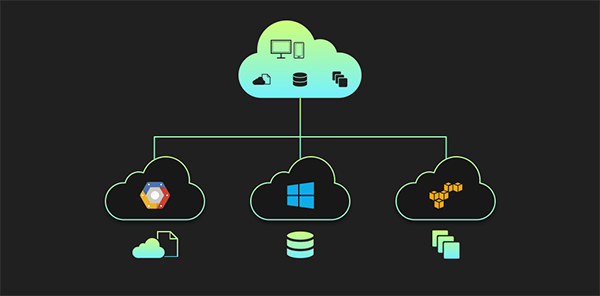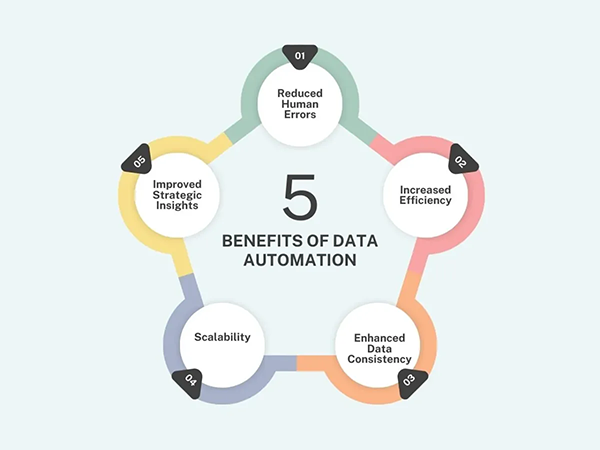Cloud native strategies help build, manage, and deploy modern cloud-based applications.
Cloud-Native Software and Data Strategy: A Perfect Match for Scalability
KEY TAKEAWAYS
- Scalability heavily depends on a data-based strategy.
- Security and legal compliance should be maintained to avoid legal troubles.
- Data strategy constants help businesses understand their needs.
- Automation makes things easy and saves time.
- AI-driven tools result in predictive strategies.

Cloud computing is something every sector has integrated into their day-to-day activity. Not to mention, the global market was valued at $752.44 billion in 2024 and will be worth a trillion dollars in the upcoming years.
Businesses have faced quite a lot of complications in managing vast amounts of data and increasing their scalability. This remained a major problem, but it can be solved quite easily. Want to know how?
Well, in this article, I’ll mention how cloud native software and data strategy are the perfect match for scalability. So, if you were met with any such shortcomings, they are going to be resolved today.
The Growing Adoption of Cloud-Native Software
The Cloud Native Computing Foundation (CNCF) stated that cloud-based technologies experienced a significant growth of 50% in 2020 because IT landscapes have integrated them into their framework and rely on them heavily.
A reliable architecture needs to be built around the cloud-based software programs that consist of microservices, containers, and orchestration, which further contribute to the development of the cloud environment.
Businesses that were expected to grow or had fluctuating workloads were met with great flexibility as they were able to deploy and manage various application across different IT systems.
Why Scalability Depends on a Strong Data Strategy

Apart from handling user requests and transactions, scalability is also known for management and simplifying the data generated by integration so they are easy to understand and make sense.
Here are some reasons why scalability is dependent on a strong data strategy:
Scalability & Performance: Optimized Data Storage and Retrieval.
Optimization of the data storage and retrieval system is a must for fostering scalability. Databases like NoSQL, which scale data horizontally, are paired with cloud-based applications as they align well with scalability requirements and give high performance.
Security & Compliance: Managing Risks in Cloud Environments
Security and compliance risks aren’t new, and it’s important to implement strong strategies surrounding data to eliminate challenges, especially in highly regulated industries.
A few common steps that can be taken include data encryption, regular audits, and identity management.
Cost Efficiency: Avoiding Unnecessary Data Storage and Processing Costs
While cloud based resources are known for cutting down cost, they can increase it easily as well if they are not managed properly. Data strategies should include policies related to data lifecycle management, as it can significantly lower the cost by eliminating storage and processing.
DID YOU KNOW?Cloud computing isn’t a modern-day concept, it was first introduced in the 1960s!
How Data Strategy Consulting Services Enhance Cloud Scalability
Data strategy consulting services, such as, https://spd.tech/data-strategy-consulting-services/ are essential for businesses that want to benefit from their cloud-native software investment. Here’s how they can enhance cloud scalability:
Designing Cloud-Optimized Data Architectures
Consulting services help firms with designing an architecture that matches their cloud needs and utilize all the features like auto-scaling to its full potential.
Ensuring Seamless Integration Across Multi-Cloud Environments

There are several businesses out there who have enforced multiple cloud strategies and consultants can design data strategies for seamless data movement and implement proper management across different services.
Strengthening Data Governance and Security Frameworks
These professionals are aware of all the local and international laws related to data security and greatly contribute to protecting sensitive information. They reinforce governance and security frameworks, regardless the size of the operation.
Best Practices for a Scalable Cloud Data Strategy
Finally, here are some of the best practices to assist with scalable cloud data strategy:
Choosing the Right Cloud Provider Based on Data Needs
There are thousands of cloud providers, each offering something different, but you have to choose the one that provides various services, performance characteristics, and, most importantly, matches the needs of the company.
Automating Data Management and Backup Processes
Automation is advantageous as it can streamline various tasks and save valuable time on repetitive tasks. Backup should be done without any manual input so that in case anything happens, the business will be able to recover all the valuable data.
A real-time monitoring system and self-healing system decrease operation overhand and human error; this also enables organizations to ensure data integrity and availability. Below, you can see 5 benefits of data automation.

Leveraging AI-Driven Analytics for Real-Time Insights
AI has been revolutionary, and with AI-driven analytical tools, firms can get predictive insights, which contribute to making data-based information. These are also known for analyzing bulky data, identifying different patterns, and determining future trends, helping them to stay ahead of the competitors.
Conclusion
When cloud native software and data strategy start complimenting each other, scalability gets increased significantly. It’s not hard to make this happen and use them side by side, a few steps need to be taken and implemented.
Companies should reach out to professionals as they can help them understand everything and suggest the perfect strategy. It’s a great investment and helps organizations grow in the long run.
Frequently Asked Questions
What are native strategies?
What is the scalability of cloud computing?
In simple terms, it refers to the ability to either increase or decrease IT resources based on the change of demand.
What are the 4 C’s of cloud native security?
The 4 C’s are cloud, clusters, code, and containers. They can be explained as the layers of security.
“Stop selling. Start helping.” — Zig Ziglar (Author) And the personnel who sell the hardest to clients and help the…
Digital storefronts are always at risk of losing files. In the case of a system failure, the effects on sales…
USB drive not showing up, acting slow, unreadable, or showing as RAW? Please, don’t format it immediately. I am going…
“Those who do not live in the past cannot live in the future.” — Lord Acton (19th-century historian) This is…
Healthcare data is dynamic. It travels through cloud backups, billing offices, nurse stations, insurance systems, reception desks, and occasionally across…
You’ve poured your heart and soul into creating your website. Every blog post, product description, and stunning image is a…
For a long time, remote desktop technology was the domain of IT support technicians and spreadsheet-heavy administrators. If the connection…
Are you wondering what speech basics are and what you capture, how to store it and analyse the same without…
If your Android suddenly shows Safe Mode, or you just want to undo Safe Mode after finishing your task, you…





